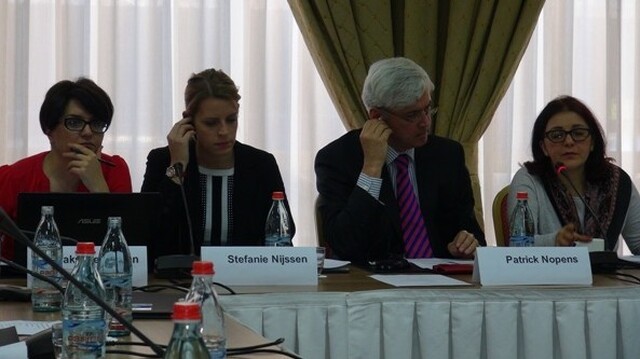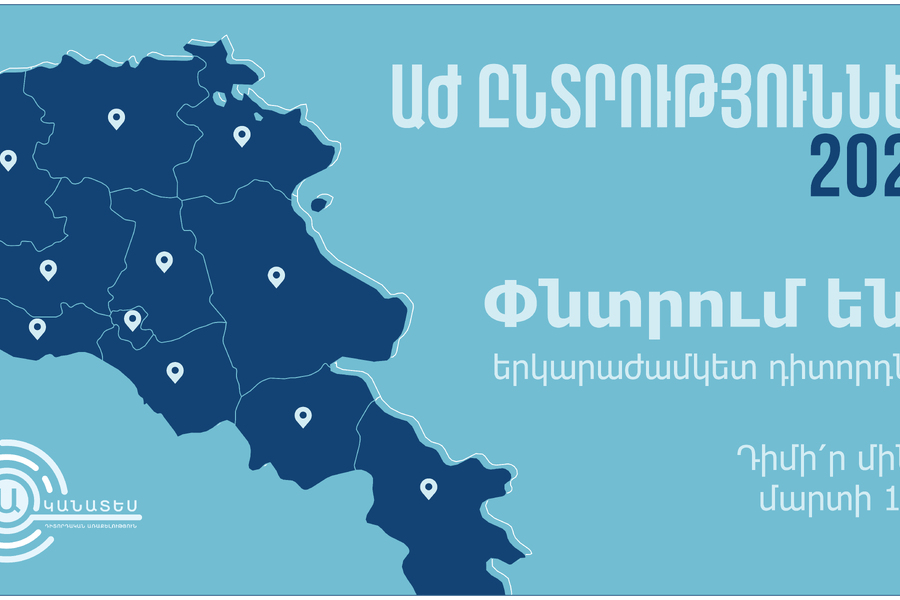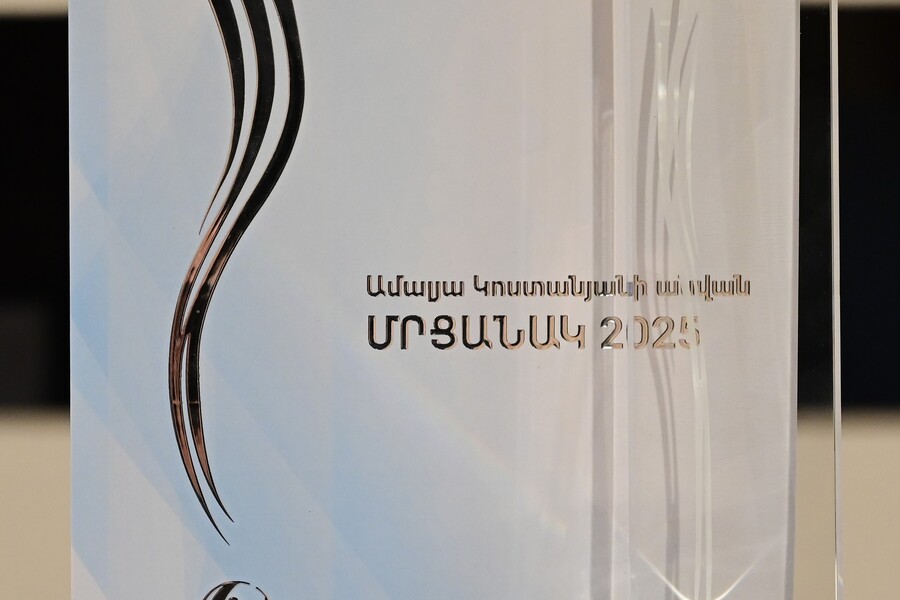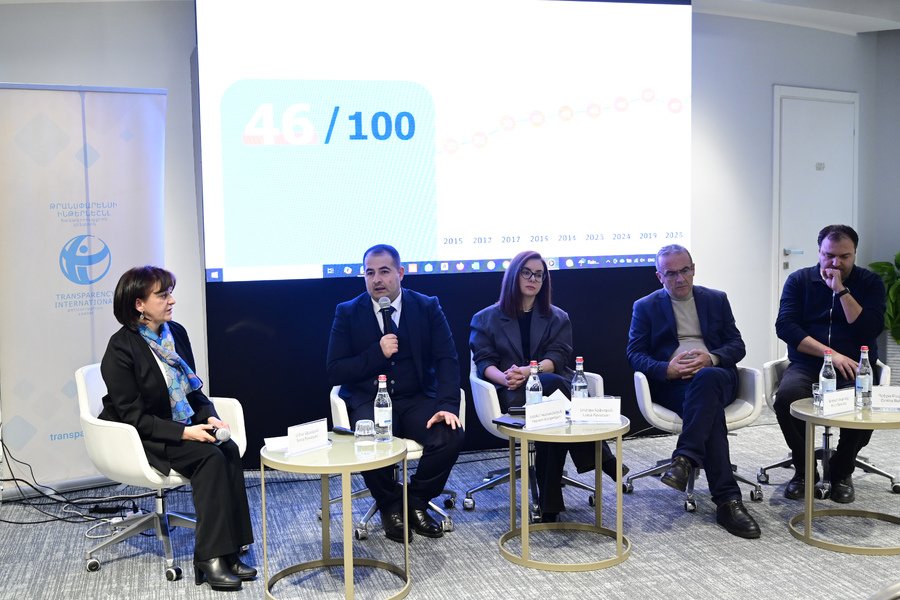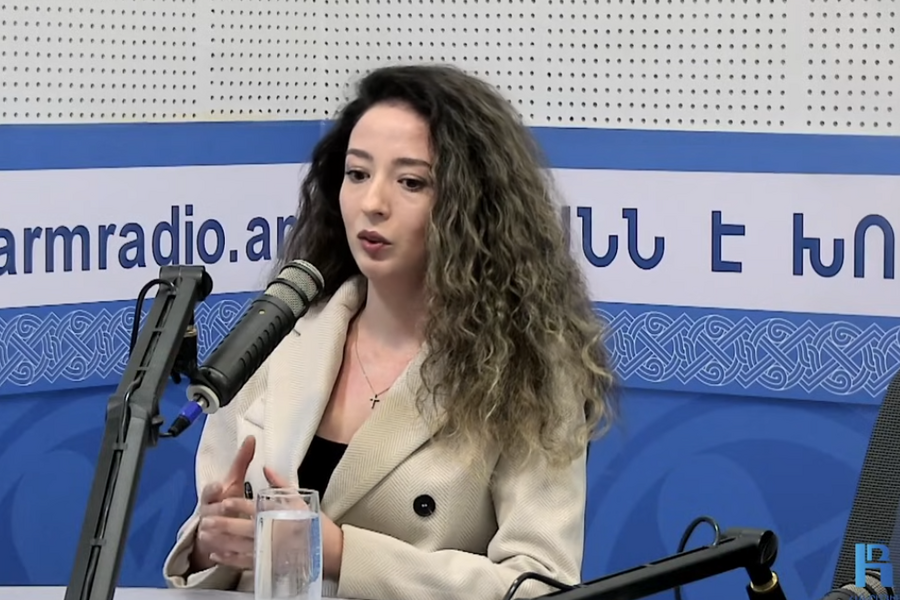Corruption risks were assessed in Armenia's defense sector
Government Defense Anticorruption Index of Armenia was presented and discussed on February 17, 2016. The corruption risks in Armenian defense sector were assessed as part of Defense and Security Program (TI-DSP) Government Defense Anticorruption Index 2015 global study. Armenian translation and publication of the research is made possible with the support of British Embassy in Yerevan through the project “Promoting the Integrity of the Defense Sector in Armenia” implemented by the Transparency International Anticorruption Center. Corruption risks are assessed in key areas. Armenia is ranked in Band D in the high category for corruption in the defense and security sector.
The highest risk areas were Finance, Operations, and Procurement, which fell in Band E (very high risk of corruption). The authors of the research also viewed and assessed defense sector according to transparency, trust and effectiveness, commercial activities and conflict of interests and building integrity. According to the results the Armenian government classifies a great majority of military procurement procedures and decisions, and only reveals very general information about defense. budgets.
The opening remarks were delivered by Sona Ayvazyan, Deputy Director of Transparency International Anticorruption Center; Koryun Nahapetyan, Chair of the National Assembly’s Standing Commission on Defense, National Security and Internal Affairs; Aleksandr Avetisyan, Senior Assistant of the Minister of Defense, Head of the Center of Human Rights and Building Integrity and Patrick Nopens, Brigadier General (retired), Consultant, Transparency International Defense and Security Program.
As said by Sona Ayvazyan if there is corruption in numerous sectors, naturally there cannot be an area which is not immune to corruption. The sector should not have immunity under the pretext of war or conflict situation. Corruption should be fought in all sectors. “On the one hand defense sector is vulnerable and sensitive because of different reasoning, on the other hand, since it ensures people’s security, confidence in the sector is of great importance.”
According to Koryun Nahapetyan preliminary inquiries, consultations should have been conducted with respective institutions – departments, commissions – to avoid irregularities.
Aleksandr Avetisyan had problems with the methodology of the research. In his opinion there are approaches that may have been reviewed. Should the methodology be different the results would have been more positive.
Patrick Nopens presented the global comparative results of the research.
The methodology of the research was presented by Stefanie Nijssen, Transparency International Defence and Security Program, Project Lead, Conflict and Insecurity Team. The research findings regarding Armenia were presented by Araks Melkonyan, TIAC Project Coordinator.


